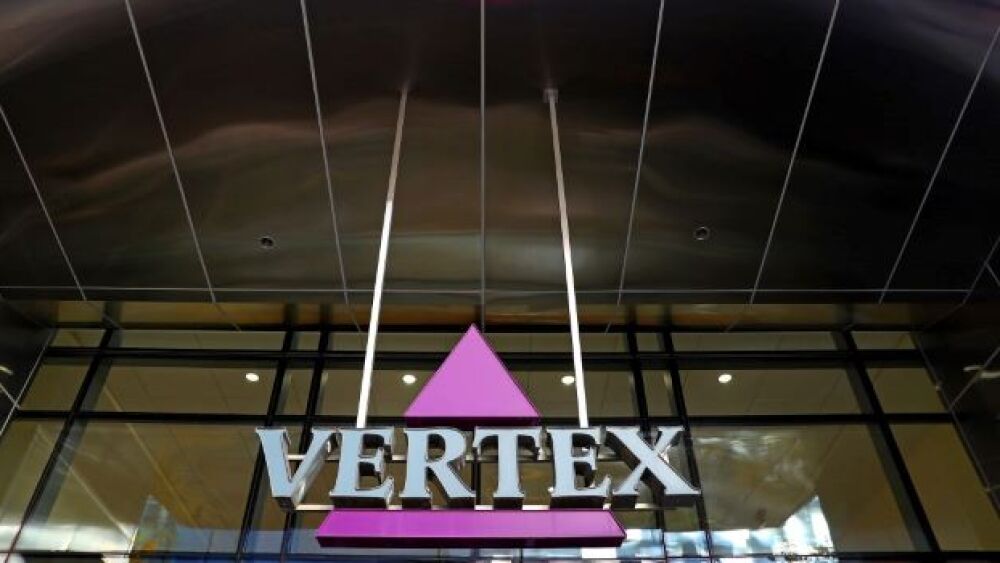Vertex Pharmaceuticals plans to acquire ViaCyte for $320 million in cash. ViaCyte focuses on stem cell-derived cell replacement therapies that they hope will cure type 1 diabetes (T1D).
Ryan/The Boston Globe via Getty Images
If you can’t beat ‘em, buy ‘em. Vertex Pharmaceuticals plans to do just that, announcing its intentions to acquire competitor ViaCyte for $320 million in cash. ViaCyte focuses on stem cell-derived cell replacement therapies that it hopes will provide the ever-elusive cure for Type 1 diabetes (T1D).
Back in February, ViaCyte and partner CRISPR Therapeutics dosed their first patient in a Phase I trial of VCTX210 for T1D. The therapy is an investigational, patient-derived, gene-edited, immune-evasive, stem cell therapy. The cell therapy combines CRISPR’s gene-editing expertise with ViaCyte’s proprietary pluripotent stem cell line. VCTX210 produces pancreatic cells that won’t be rejected by the patient’s immune system but should differentiate into pancreatic endoderm cells, which will then produce insulin.
CRISPR and ViaCyte Dose First Patient in Historic Type 1 Diabetes Trial
For its part, Vertex has its own allogeneic stem cell-derived, fully differentiated, insulin-producing islet cell therapy for T1D, VX-880. A clinical hold was placed on the Phase I/II trial of VX-880 but was lifted on July 5. The hold was based on a very conservative approach by the U.S. Food and Drug Administration, which wanted more information on dosing.
“VX-880 has successfully demonstrated clinical proof of concept in T1D, and the acquisition of ViaCyte will accelerate our goal of transforming, if not curing T1D by expanding our capabilities and bringing additional tools, technologies and assets to our current stem cell-based programs,” Dr. Reshma Kewalramani, M.D., chief executive officer and president at Vertex said of the therapy.
Vertex is also working with CRISPR Therapeutics. On June 11, the two companies presented new data on exagamglogene autotemcel (exa-cel), an investigational therapy for transfusion-dependent beta-thalassemia (TDT) or severe sickle cell disease (SCD). The data was based on 75 patients, 44 with TDT and 31 with SCD, with a follow-up from 1.2 to 37.2 months after receiving the therapy. Of the 44 TDT patients, 42 were transfusion-free from 1.2 to 37.2 months, while the remaining two were not yet transfusion-free but had 75% and 89% decreases in transfusion volume.
A Synergistic Match
Vertex’s current T1D programs consist of VX-880, currently in Phase I/II and encapsulated islet cells, still in the preclinical research stages.
ViaCyte’s products all focus on treatments for diabetes. These include PEC-Direct, a pouch designed to allow blood vessels to enter the device and directly interact with implanted PEC-01 cells. Another is PEC-Encap, also a pouch, which contains the implanted cells but still allows nutrients and proteins to travel between the cells inside the device and the blood vessels. As mentioned above, VCTX210, also dubbed PEC-QT, is the company’s pluripotent human stem cell line.
“ViaCyte’s commitment to finding a functional cure for T1D is shared by Vertex, and this acquisition will allow Vertex to deploy ViaCyte’s tools, technologies and assets toward the development of Vertex’s multiple cell replacement therapies approaches designed to reduce the burden of millions of people living with T1D worldwide,” Michael Yang, ViaCyte’s president and chief executive officer said of the deal.
Type 1 diabetes is an autoimmune disease where the patient’s immune system attacks the pancreas cells that produce insulin. Insulin helps blood sugar (glucose) enter cells for use in energy production. But without insulin, blood sugar doesn’t enter the cells but builds up in the bloodstream. This can lead to any number of disorders that can be life-threatening, including diabetic retinopathy, diabetic neuropathy, problems with circulation and a higher risk of cancer. People with T1D take insulin via injection or a pump for their entire lives. Efforts to perform pancreatic cell transplants have faced obstacles related to immune rejection.





